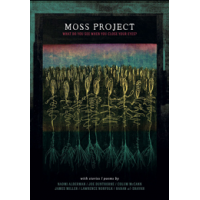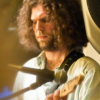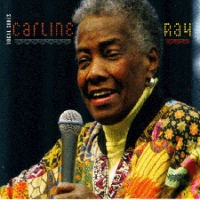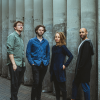Home » Jazz Articles » Album Review » Moss Project: What Do You See When You Close Your Eyes?
Moss Project: What Do You See When You Close Your Eyes?
Guitarist Moss Freed leads Moss Project. He originally formed the band when he was studying at Berklee. When he returned to the UK he kept the name, changed the lineup and released the Moss Project's debut album, Vision (Apsara Records, 2009). Freed is now based in London, but hails from Manchester. The Manchester jazz scene is one of the UK's most innovative, with a strong spiritual element running through the work of players such as trumpeter Matthew Halsall and saxophonist Nat Birchall.
Freed's musical vision also incorporates a gentle spirituality but while Halsall and Birchall look towards John Coltrane, Alice Coltrane and Pharoah Sanders for inspiration, Freed stays closer to home, mixing jazz with prog rock riffs and folky acoustic playing to give the music a spacious, almost bucolic, feel.
Freed composed all of the music apart from "Caravans," a loose, brooding, piece written by bassist Ruth Goller. "Freud And Jung Ride The Tunnel Of Love" gets the humorous approach the title suggests, aided by Shabaka Hutchings' bass clarinet. The title track gets an Afro-beat groove for part of the time, driven by Freed and drummer Marek Dorcik. On "The Angel" Alice Zawadzki's violin playing adds an ethereal quality to the music that does much to heighten its beauty.
As a vocalist, Zawadzki concentrates on a wordless, scatting, style on all but one tune. There's a crystalline purity to her voice that gives it an instant appeal: her voice and violin combination is especially graceful on "Anniversary." When Freed adds a lyric, on "Postscript: Lose Ourselves," Zawadzki retains that purity and delivers the words with a real sense of involvement.
And the book part of this sumptuous package? After recording, Freed decided to invite half a dozen authors to write short stories or poems in response to six of the tunes. The results are contained within the pages. The pick of the bunch are Joe Dunthorne's poetic response to "Freud And Jung Ride The Tunnel Of Love" and Lawrence Norfolk's funny on-the-road tale of "Caravans." What Do You See When You Close Your Eyes? is a beautiful musical experience—the literary contributions are an added gift.
Track Listing
Introduction; The Bubble; Anniversary; What Do You See When You Close Your Eyes?; Caravans; Freud And Jung Ride The Tunnel Of Love; The Angel; Postscript: Lose Ourselves.
Personnel
Moss Freed
guitar, electricMoss Freed: guitar, backing vocals; Alice Zawadzki: violin, vocals; Ruth Goller: double bass, bass guitar, backing vocals; Marek Dorcik: drums; Shabaka Hutchings: bass clarinet, tenor saxophone (3, 6).
Album information
Title: What Do You See When You Close Your Eyes? | Year Released: 2013 | Record Label: Babel Label
Tags
PREVIOUS / NEXT
Moss Freed Concerts
Support All About Jazz
 All About Jazz has been a pillar of jazz since 1995, championing it as an art form and, more importantly, supporting the musicians who make it. Our enduring commitment has made "AAJ" one of the most culturally important websites of its kind, read by hundreds of thousands of fans, musicians and industry figures every month.
All About Jazz has been a pillar of jazz since 1995, championing it as an art form and, more importantly, supporting the musicians who make it. Our enduring commitment has made "AAJ" one of the most culturally important websites of its kind, read by hundreds of thousands of fans, musicians and industry figures every month.























